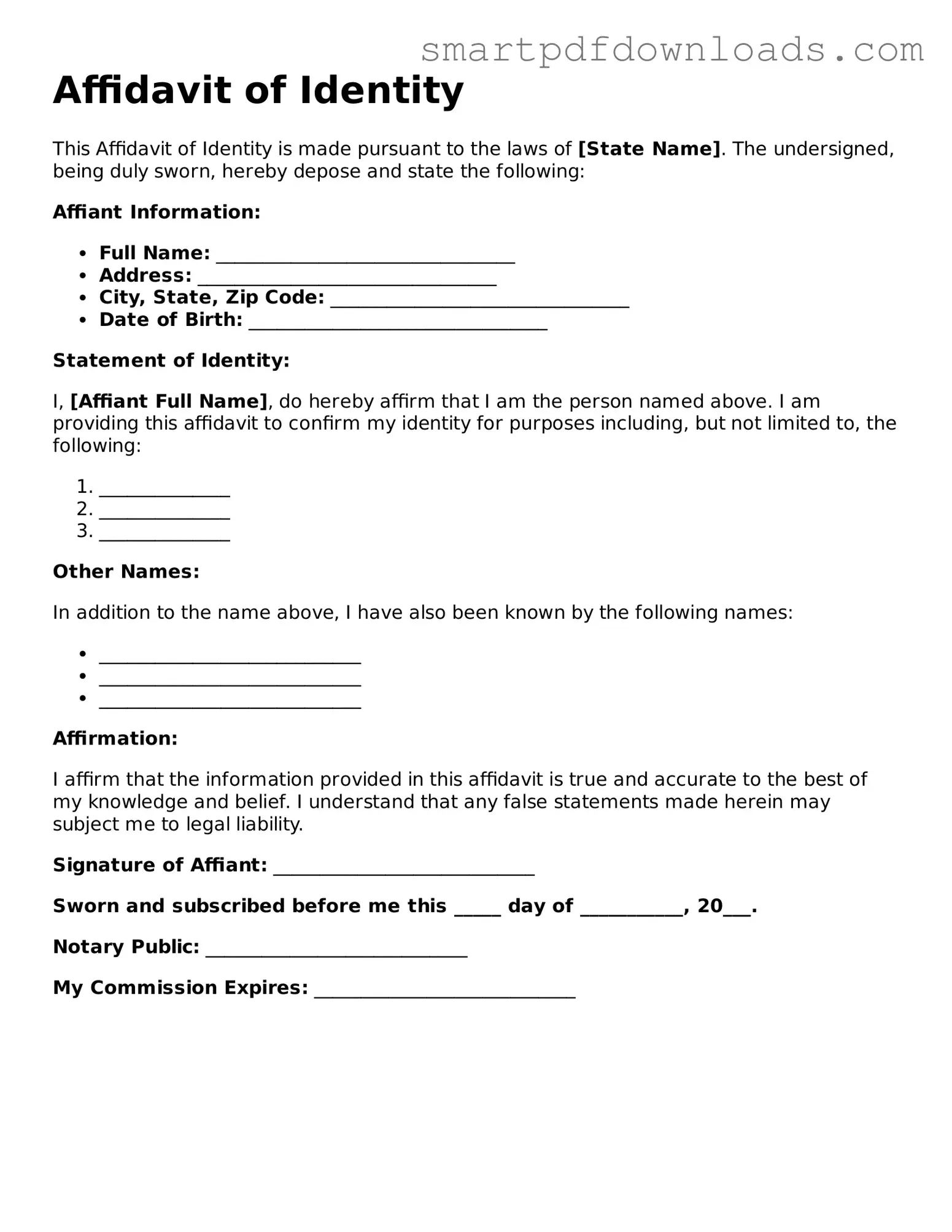Free Affidavit of Identity Form
The Affidavit of Identity form is a legal document used to verify a person's identity. It serves as a sworn statement, often required in various legal and administrative processes. Completing this form accurately is essential for ensuring the legitimacy of identity claims.
Edit Affidavit of Identity Online

Free Affidavit of Identity Form
Edit Affidavit of Identity Online

Edit Affidavit of Identity Online
or
⇓ PDF File
Finish the form and move on
Edit Affidavit of Identity online fast, without printing.